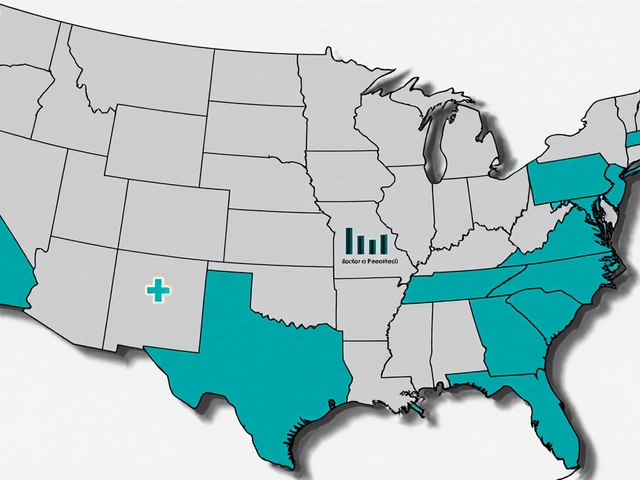Top IVF Clinics in the USA – A Practical Guide
If you’re thinking about IVF, the first question is usually “where should I go?” The US has a huge number of fertility centers, but not all of them give the same results or charge the same fees. In this guide we break down the most useful factors so you can pick a clinic that fits your budget, your timeline, and your comfort level.
How to Compare Success Rates
Success rates are the number one thing most couples look at, and they’re easy to find on each clinic’s website or on the CDC’s Assisted Reproductive Technology (ART) report. Look for the live‑birth rate per embryo transfer rather than just the pregnancy rate – a live birth is the outcome that matters. Also check the age group the data relates to; a 35‑year‑old’s success will look different from a 42‑year‑old’s. Some clinics publish cumulative rates, which include all embryos from a single cycle, and that can give a fuller picture.
Don’t forget to read the fine print. A clinic that only shows its best cases may not be telling the whole story. Ask for details on how many patients they have in each age bracket, how many cycles they average per patient, and whether they use donor eggs or sperm, as those factors affect outcomes.
Cost and Financing Tips
IVF isn’t cheap, and prices vary a lot across the country. In major cities like New York or Los Angeles you’ll often see quoted prices between $12,000 and $15,000 per cycle, while smaller markets may be a few thousand dollars less. Those numbers usually cover the basic medication and monitoring but not add‑ons like genetic testing, frozen embryo storage, or donor material.
Many clinics offer package deals, such as “IVF with one round of pre‑implantation genetic testing for $18,000.” Compare those bundles carefully – sometimes buying the tests separately can be cheaper. Also ask about refund or shared‑risk programs; a few clinics will guarantee a certain number of attempts and return part of your money if they don’t succeed.
Financing is another piece of the puzzle. A lot of patients use health‑care credit cards, personal loans, or even employer benefits. Some insurance plans cover at least part of IVF, especially in states with mandated coverage like Massachusetts or New Jersey. Call your insurer, ask for a pre‑authorization, and keep records of every expense for potential reimbursement.
Beyond cost, think about the clinic’s overall experience. Do they have a dedicated nurse for each patient? Is there a 24‑hour hotline for emergencies? Do they offer counseling or mental‑health support? IVF can be stressful, so a supportive environment can make a huge difference.
Finally, trust your gut. Schedule a consultation, meet the doctor, and ask about their approach to treatment plans. A good clinic will take the time to explain each step, answer every question, and be transparent about risks – like the IVF complications covered in our "Biggest IVF Risks" article. When you feel heard and informed, you’re more likely to stay positive throughout the journey.
Choosing an IVF clinic is a big decision, but by focusing on real success data, clear pricing, and patient support, you can narrow down the options to a few that truly match your needs. Take notes, compare, and don’t rush – the right clinic can turn a hopeful dream into a real family.

Which State Has the Cheapest IVF? Your Guide to Affordable Fertility Treatment in the USA
Curious about affordable IVF? Explore which state tops the list for cheapest IVF, why costs vary, and smart tips to save on fertility treatments.

Which Cancers Are 100% Curable?
Feb, 6 2025



